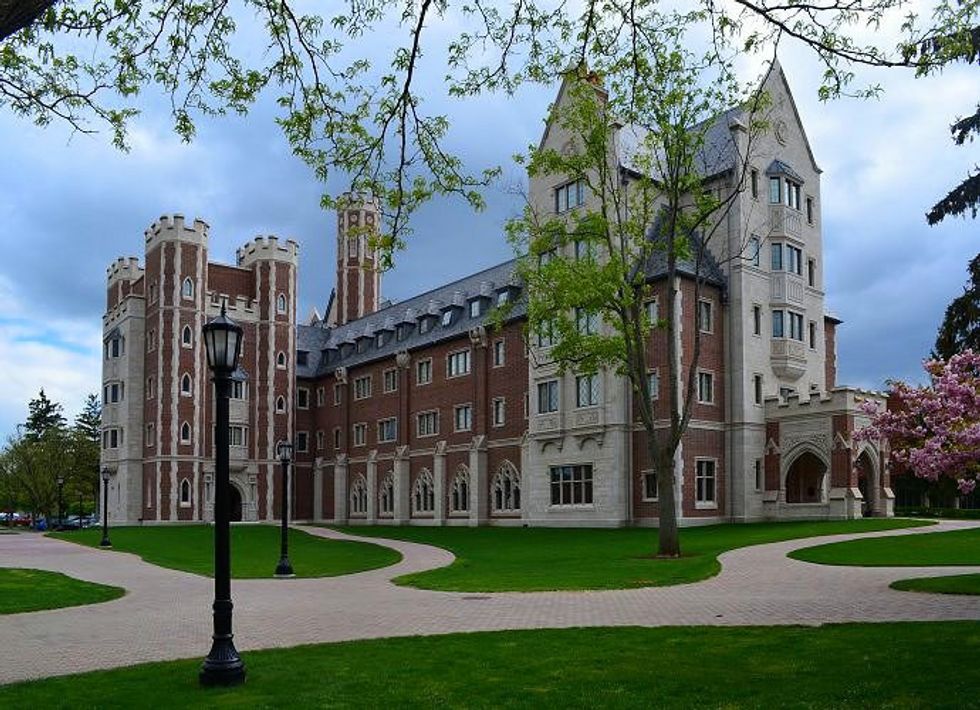There are two things on which most Americans can agree: there are too many homeless people and corporations make too much money.
Take the homeless crisis on the western coast, for example. The big cities of California, Oregon, and Washington have been flooded with unsheltered men, women, and children. While these states have seen a meteoric rise in wealth, that wealth has not trickled down to the neediest echelons of the population.
The wealth created in the western-most states has mostly been made possible by internet-powered mega-corporations like Alphabet Inc., the parent company of Google, and Apple Inc. Tech firms concentrate around the sunny and warm San Francisco bay area in California, where the media attention surrounding the high costs of living has been focused. But there is a different bay area that deserves an equal amount of buzz because it is not as appealing: rainy, cold, metallic Seattle.
Seattle is the third most homeless city in America by population, following New York and Los Angeles. It is the (primary) home of the richest man in the world, founder of Amazon.com Inc., Jeff Bezos. Starbucks Corporation’s former boss, Howard Schultz, was briefly rumored to have been considering a run for president. Starbucks hires 25,000 people; Amazon employs twenty times that.
The two corporations have been a boon for Seattle workers, not to mention the tourism industry. But the city Starbucks and Amazon call home is having difficulty finding homes for its residents. While California shoves housing prices up by requiring costly solar panels on every single-family home and Portland’s zoning laws hold up the construction of a homeless shelter for two years, Seattle is trying to distinguish itself by working to end its homeless crisis.
That’s why on Tuesday the city voted to do something that no city has done before: taxing a homegrown major company.
Usually, taxing large corporations is the Federal Government’s job. Cities and states are more reluctant to levy taxes on big businesses because they can easily pack up and leave the municipality with their hands empty. In fact, Amazon had temporarily halted all investment in Seattle on the day of the vote, which was unanimously approved by the city council.
While it is hard to envision such a bulky corporation removing itself in response to such a minor offense, the fact that Amazon is planning a second headquarters in a different city than Seattle will probably be a convenient way for the company to shift its footing from the shakier ground.
The tax is a twenty-six-cent levy on each hour an employee works at companies making $20 million or more. The tax will affect 300 companies, or 3% of Seattle’s business scene. There is some dispute over whether the tax would be born by the employer, eaten by the company, or passed on to the consumer. The city estimates that the tax could raise as much as $75 million, or $25,000 per homeless person, which would be put to use, as the ordinance puts it, “making sure that no person experiences homelessness; that if one does, it is rare, brief and only a one-time occurrence; and that racial disparities are eliminated.”
Seattle’s business tax is unfathomably bold.
While most cities are aware of the need to do something about homelessness and poverty in general, few have come up with effective solutions to these issues. California has proposed allowing a referendum on lifting the ban on rent control, which would allow a municipality to cap rent at a certain level. New York and other eastern cities have experimented with Housing First, a policy that gives homeless people a place to live for free and then remedies their drug or alcohol addiction, lack of employment or other issues that might have been the cause of their homelessness (i.e., housing comes before all other interventions).
It is unclear what Seattle plans to do with its $50 million pot of cash for homelessness, but the tax can be seen as a way to involve workers in the fight against homelessness.
In any case, the United States is the richest country in the history of the world. There is no excuse for having citizens who are working full time and still cannot afford to rent a home or to move somewhere they can.
Amazon has issued strong rebukes against the new tax, but its CEO has a bank account 2500 times the size of the money that will be raised (which it cannot be stressed enough, will go towards lifting people off of the streets). Tech firms have made a killing in America, and though most of the country has seen huge benefits in return, that wealth has had a tendency to accumulate at the top of the income pyramid.
Homelessness is a direct result of that wealth inequality.
Seattle’s problems stem from more than a lack of money. Zoning laws are airtight, inhibiting the outward growth needed to accommodate a huge influx of people (the city claims changing zoning laws has been met with insurmountable opposition from residents). The U.S. cannot address homelessness without the resources to do so. Amazon’s and Starbucks’ attempt to sway public policy that eats into their profits is proof that corporations wield too much power over the lives of everyday Americans.
Other cities should pursue bold interventions like those made in Seattle.








































